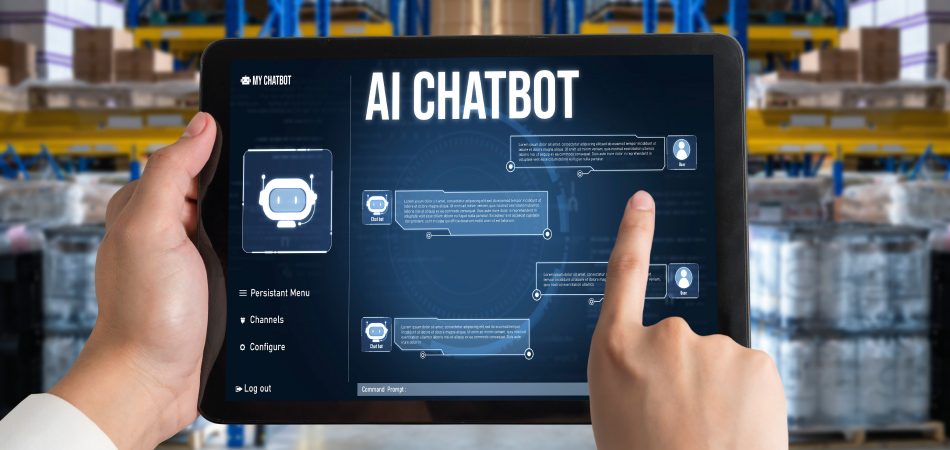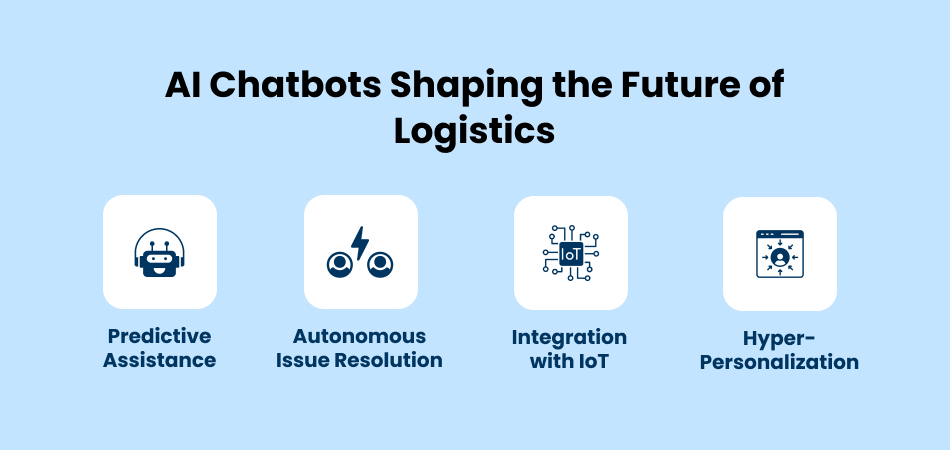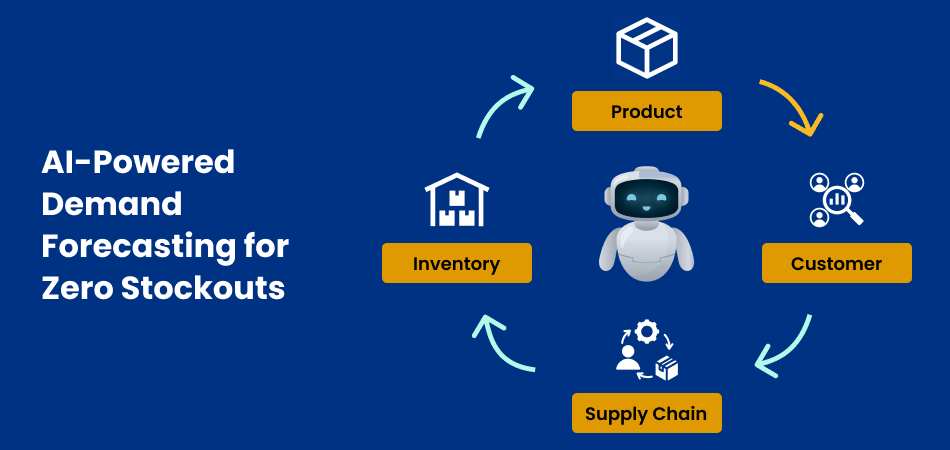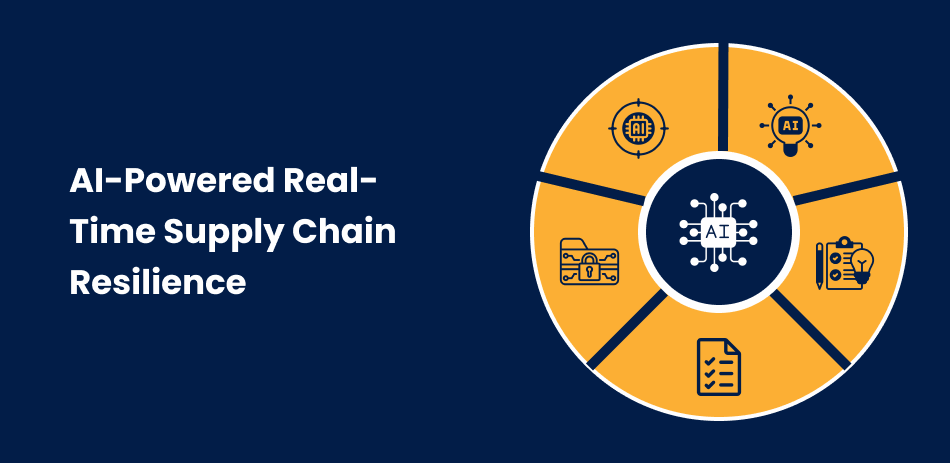What Are AI Chatbots?
AI chatbots are intelligent software applications powered by Artificial Intelligence (AI) and Natural Language Processing (NLP). They simulate human-like conversations via text or voice and integrate seamlessly into websites, mobile apps, or messaging platforms.
Unlike traditional support channels, AI chatbots:
- Operate 24/7 without downtime.
- Handle thousands of queries simultaneously.
- Provide instant, consistent, and accurate responses.
How AI Chatbots Revolutionize Shipment Tracking
Providing real-time shipment updates is a cornerstone of customer satisfaction in logistics. AI chatbots enhance this process by:
1. Providing Instant Updates
Chatbots retrieve live shipment data from logistics systems, offering customers tracking numbers, delivery statuses, and expected arrival times without waiting on a human agent.
2. Sending Proactive Notifications
Customers receive automatic alerts for key shipment milestones such as:
- Package dispatched
- In-transit updates
- Customs clearance delays
- Out-for-delivery & successful delivery
This reduces the need for manual follow-ups and builds customer trust.
3. Offering Predictive Delivery Insights
By analyzing traffic conditions, weather patterns, and logistics schedules, AI-powered chatbots can provide smarter and more accurate delivery time estimates..
Improving Customer Queries with AI Chatbots
Beyond tracking, AI chatbots also transform customer support operations:
- Instant Query Resolution: Orders, returns, refunds, and product availability are answered within seconds.
- 24/7 Availability: Unlike call centers with working hours, AI is always online.
- Personalized Interactions: Chatbots use past data to recommend solutions and greet customers by name.
- Multilingual Support: Serve customers globally in multiple languages.

Benefits of AI Chatbots in Logistics

Implementing AI chatbots for shipment tracking and customer queries offers multiple business benefits:
- Reduced Operational Costs – Automating repetitive tasks lowers dependency on large support teams.
- Faster Response Time – Instant answers improve customer satisfaction scores (CSAT).
- Scalability – Handle seasonal spikes (like Black Friday or Diwali sales) without extra manpower.
- Data Insights – Collect and analyze customer queries to optimize services and predict demand trends.
Challenges in Implementing AI Chatbots
While AI chatbots deliver immense value, businesses must navigate certain challenges:
- Data Security & Privacy – Protecting customer shipment data from breaches.
- Complex Queries – AI struggles with unusual requests; human backup is essential.
- Integration Complexity – Connecting chatbots with legacy logistics systems can be time-consuming.
- Customer Trust – Some users still prefer human interaction, so balancing automation with empathy is crucial.
Best Practices for Successful Implementation
To maximize effectiveness, companies should:
- Integrate with Existing Systems (ERP, CRM, and logistics tracking).
- Maintain Human Backup for escalations.
- Optimize for Mobile since most customers track orders on smartphones.
- Continuously Train AI with updated data to improve accuracy.
The Future of AI Chatbots in Logistics

Looking ahead, AI chatbots are set to become even more powerful with:
- Predictive Assistance: Anticipating queries before customers ask.
- Autonomous Issue Resolution: Handling damaged goods claims or re-routing without human involvement.
- Integration with IoT: Chatbots interacting with smart delivery lockers, drones, or GPS trackers.
- Hyper-Personalization: Offering flexible delivery slots or eco-friendly shipping options based on customer preferences.
FAQs
- What is an AI chatbot for shipment tracking?
An AI chatbot provides customers with real-time updates on shipments and responds to queries instantly. - How accurate are AI chatbots for delivery tracking?
When integrated with logistics systems and predictive analytics, AI chatbots provide highly reliable delivery estimates. - Can AI chatbots handle customer complaints?
Yes. Basic issues are solved instantly, while complex ones are escalated to human agents. - Are AI chatbots suitable for small businesses?
Absolutely. Even small logistics and e-commerce companies can benefit from affordable chatbot solutions. - How do AI chatbots improve customer satisfaction?
They deliver instant responses, proactive notifications, 24/7 support, and personalized experiences—leading to happier customers.
Conclusion
AI chatbots are no longer a “nice-to-have” but an essential tool for modern logistics and e-commerce businesses. They streamline shipment tracking, resolve customer queries instantly, and provide predictive insights that improve both efficiency and customer satisfaction.
Companies that adopt AI-powered chatbots today are not just reducing costs—they are building a future-ready logistics ecosystem with scalability, personalization, and unmatched service quality.


